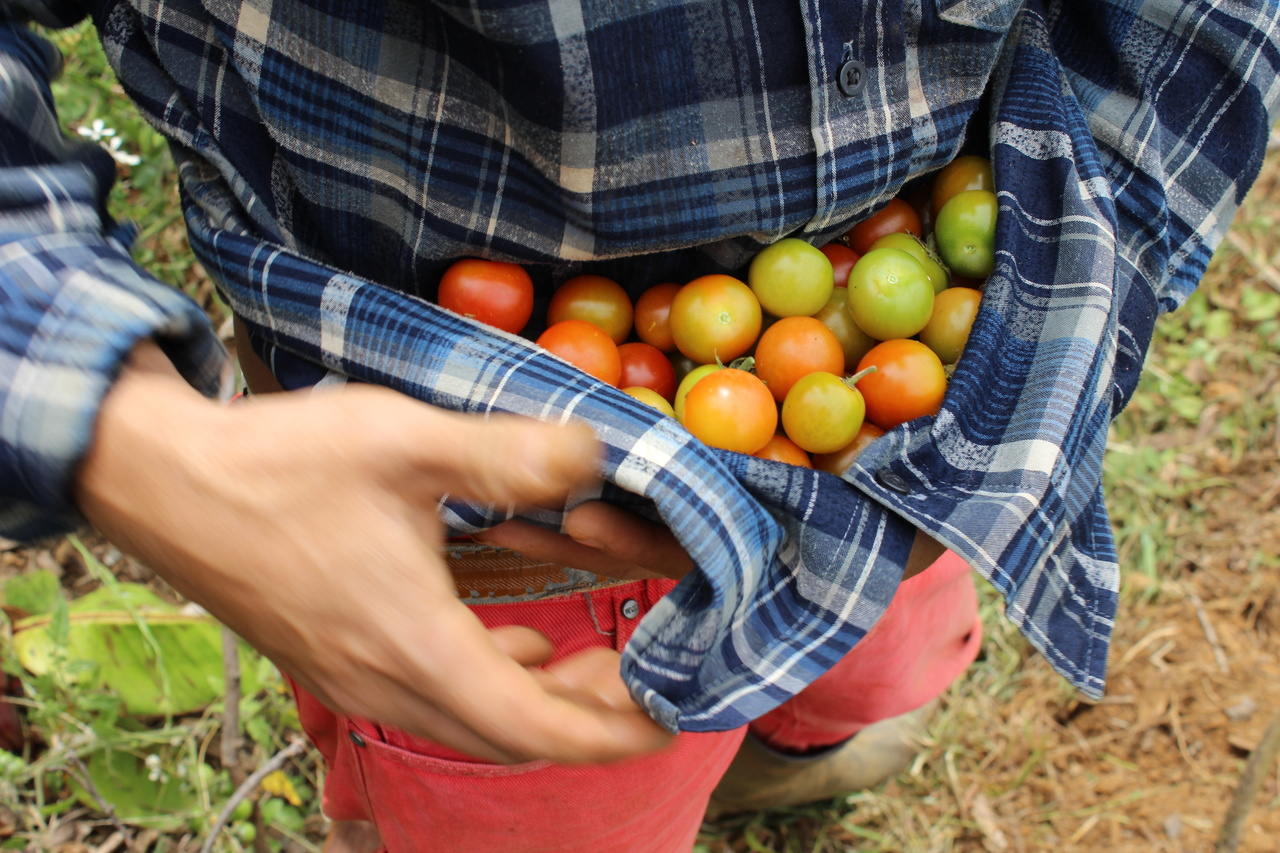
This second to last LiA blog post is centred around the main event of my re_action for impact project, which occurred in El Faro (one of the highest neighbourhoods in Medellín, Comuna 8) on August 13th, 2023. As such, the words I have chosen to describe the past weeks all relate in some way or another to our experience with the community of El Faro:
Historias, ‘stories’: I feel very grateful for the opportunity to learn about the history of the barrio and its development in the years through the stories of the very same people who built it and keep building a community in the place. Thank you to Gabriel, Carlos, Alejandra, Marta, Anthony, Óscar amongst others for trusting us and opening us the door to their home.
Sancocho is a traditional soup Antioqueña, which became for me the symbol of community work and sharing experiences. During the convite, a group of volunteers was in charge to prepare a olla comunitaria (literally translated in ’community pot’) for all those who collaborated on the day working in the community garden and the agroforesta, amounting to around 70 people in total between our volunteers, members of El Derecho a No Obedecer, the local community and a group of volunteers from another neighbourhood in the city (Comuna 2).
Semillas means ‘seeds’, and siembrar semillas (’planting seeds’) is what we have done for most of the time during the event.
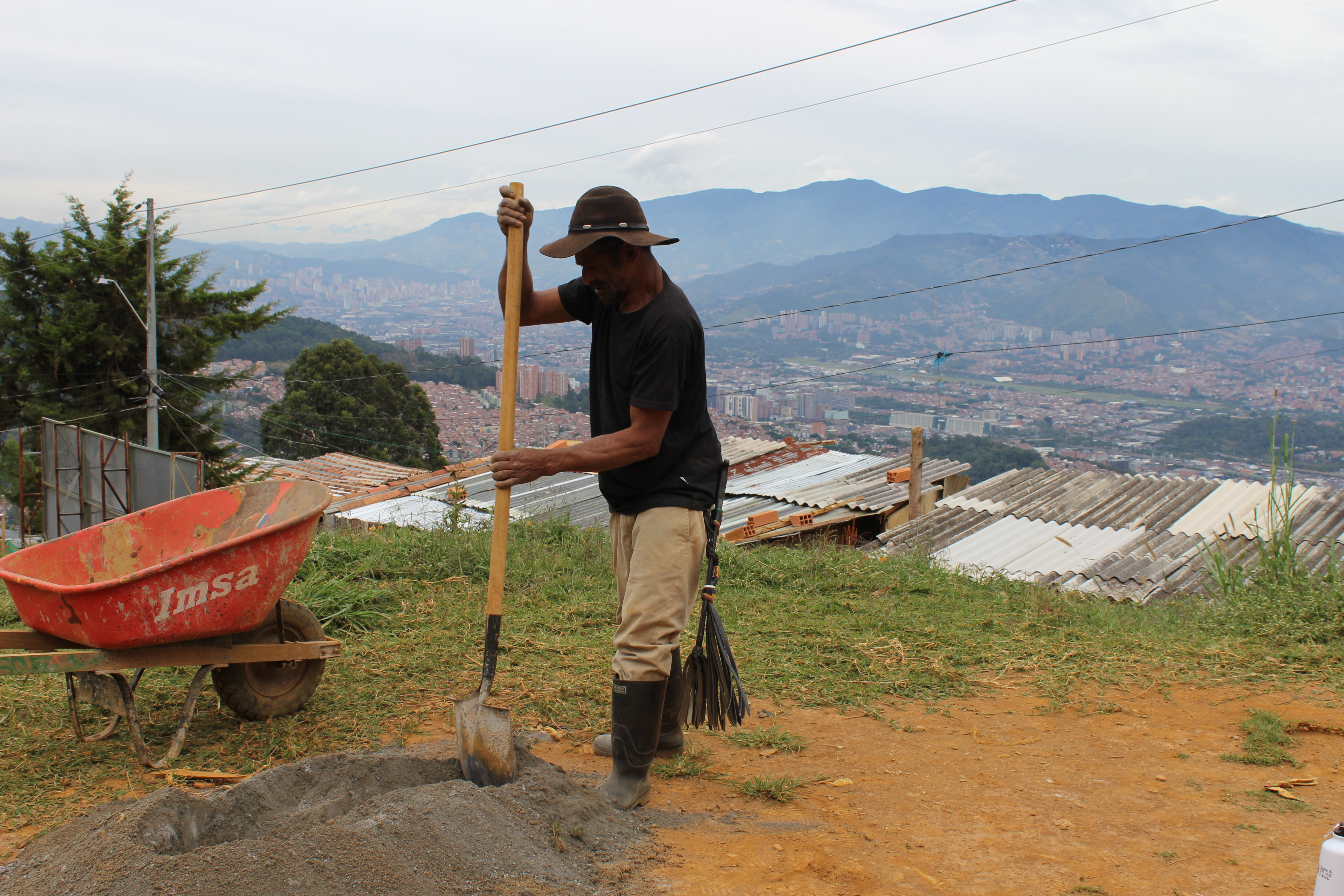
What went well?
Besides the physical act of planting seeds, community action days like the one we partook in and helped organising in El Faro are functional also to planting the seeds for a feeling of belonging to the territory and the community, promoting food sovereignty, collaboration, and education of the local population and volunteers on agricultural practices. It is not a case, then, that the children who gather every fortnight for the huerta escuela (’garden school’) to learn about sustainability and natural sciences while working on the maintenance of the community garden decided to name their project 'Semillas de Vida' (’seeds of life’). Contributing with our volunteers and fellow scholars to this community initiative was an incredible privilege, and it brought me enormous joy to see so many ‘getting their hands’ dirty together with the people of El Faro.
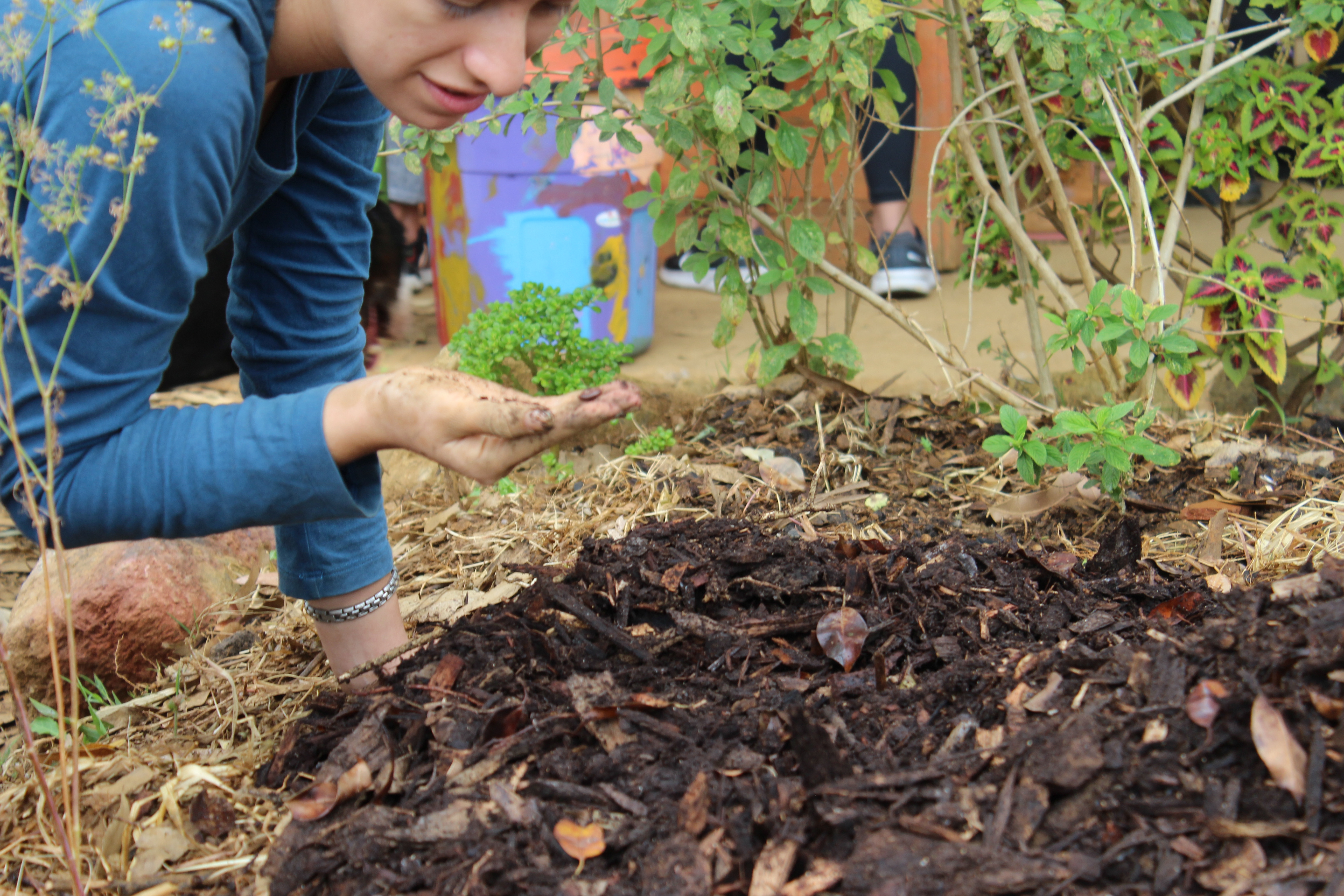
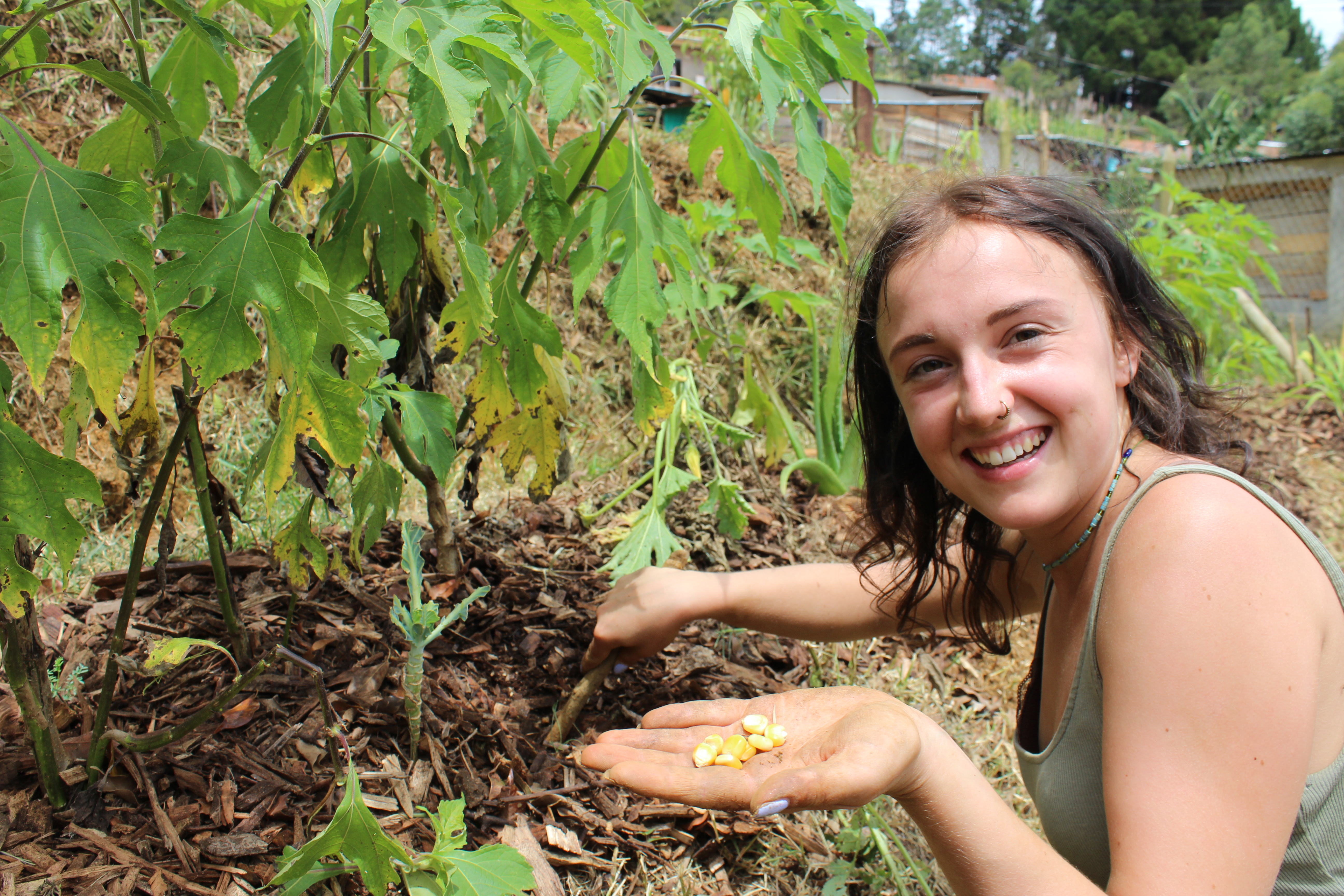
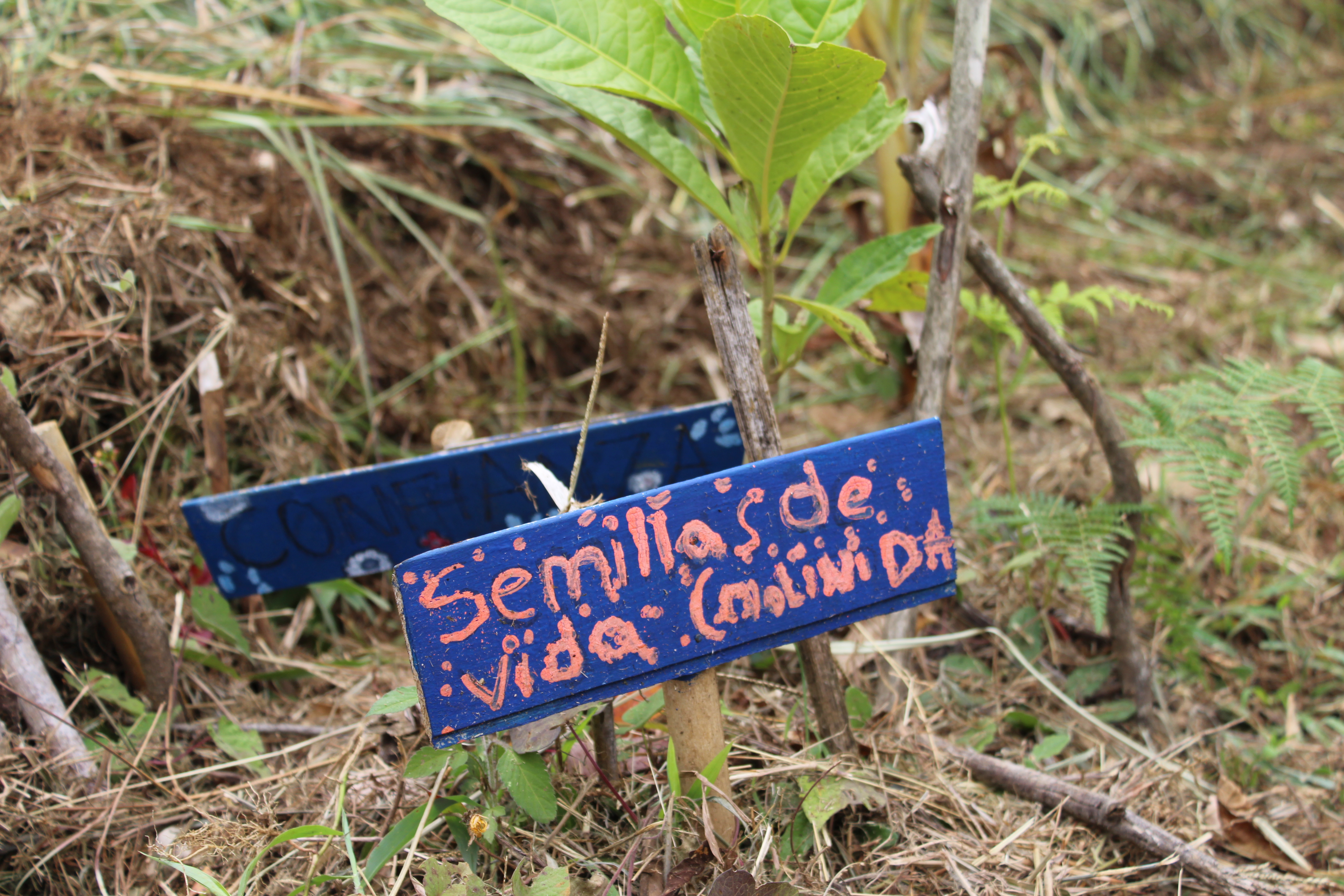
What could have been done differently?
If I could re-do the project from zero, the only aspect I would change is that of our relationship with the partner organisation, El Derecho a No Obedecer (DANO). We met some key figures in the Medellín branch of DANO during week 1, and engaged with them again on week 3 for a visit to El Faro and week 5 for a meeting with our volunteers. Another online meeting to discuss the logistics for the event in El Faro happened in week 4, but besides that most communication was carried out via text and mainly by me. I feel connected to DANO, their work and purpose, but I wish we created more opportunities of engagement and exchange with them for our group of volunteers. At the end of the convite, DANO facilitated a group discussion to assess the level of engagement and impact amongst the participants to the event; in retrospect, it could have been effective to include some of our volunteers in the planning of the discussion, to increase their engagement with the work of DANO. Regardless, many of the students we collaborated with have expressed an interest to volunteer for DANO and some of them have already joined the network Ciudanania no Obediente (’disobeying citizenship’), a platform which DANO uses to communicate upcoming opportunities to contribute to symbolic actions and initiatives that they organise around the city.
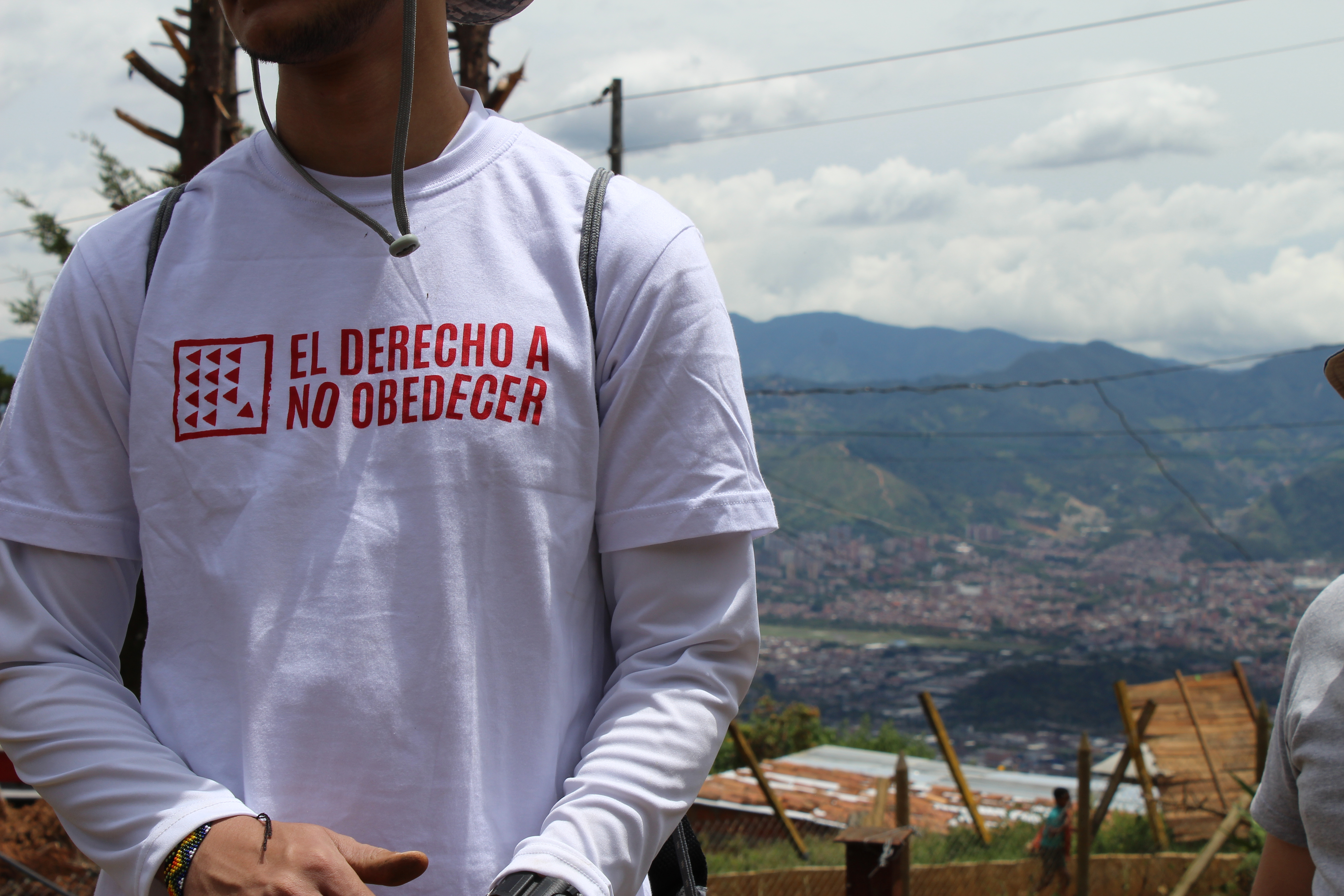
What did I learn about myself when working with others?
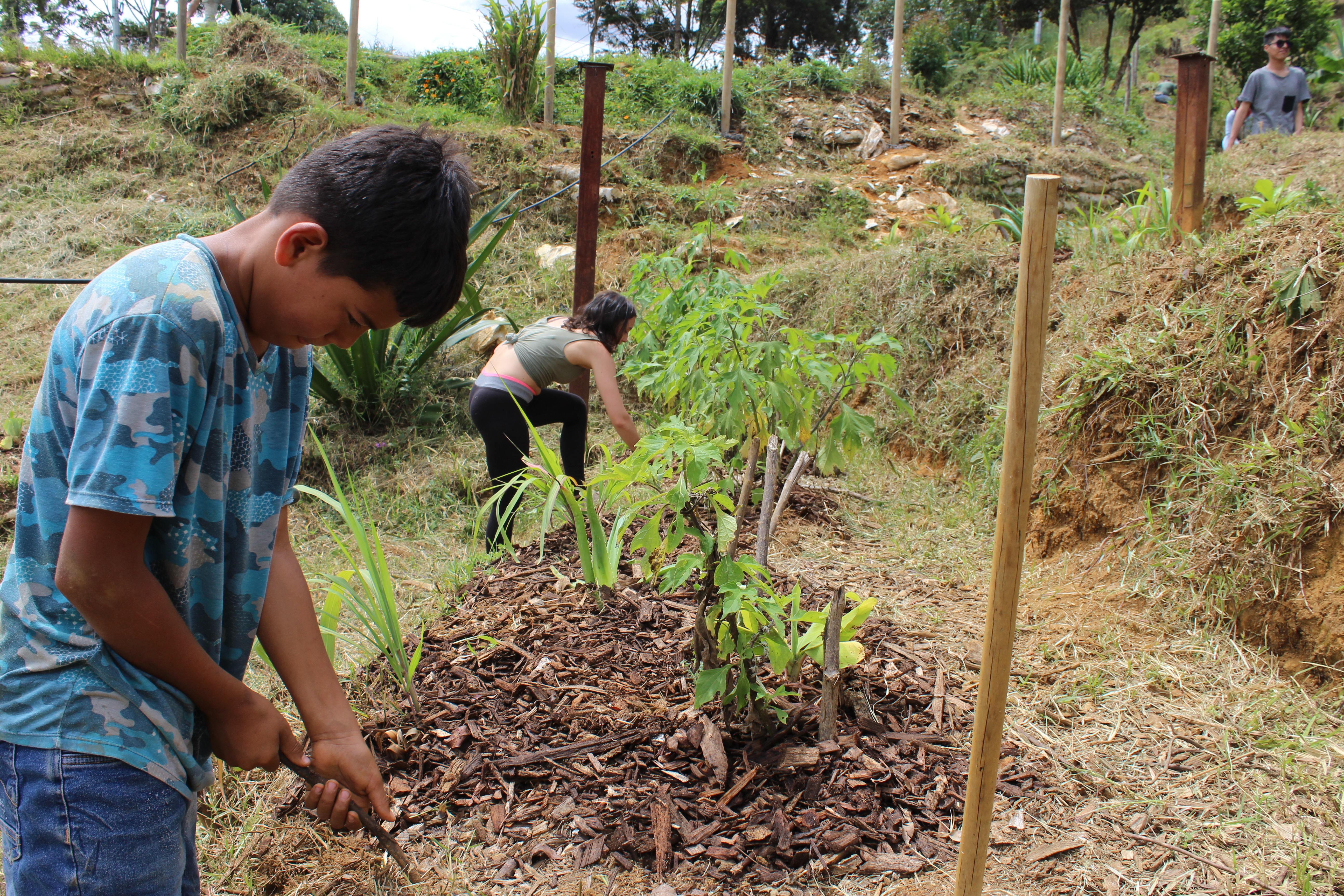
Reflecting on the Laidlaw Scholars values, I believe that being smart also means being predisposed to learn from who is more knowledgeable than you, no matter their age or educational background. For me, this was exemplified in my interaction with one of the children from El Faro, the nine-years-old Andrés, during the convite. Andrés and I met as I was planting some lettuce in the community garden. He glanced at me for a few seconds, before informing me that I was quite literally suffocating the little plants by pressing too hard the soil around their roots. He then proceeded to show me the correct way to do it, sharing the knowledge he acquired at the huerta escuela: that is how we became a team on the day, him teaching and me executing. When we finished our work in the garden, we moved to the agroforesta. There I received a ‘private tour’ by my young, clever friend, who could name almost every plant and tree; he prevented me from accidentally stepping over the crops, talking and weeding at the same time. As we sat down for lunch together and started chatting (thank you Andrés for telling me that I look younger than my age), I couldn’t help thinking about how lucky I was for the chance to spend the day by his side. Amongst everything he taught me, the most relevant lesson was on the importance of listening and following others’ example: it is not rare for one to think to be doing things right whilst suffocating plants, especially in leadership positions.
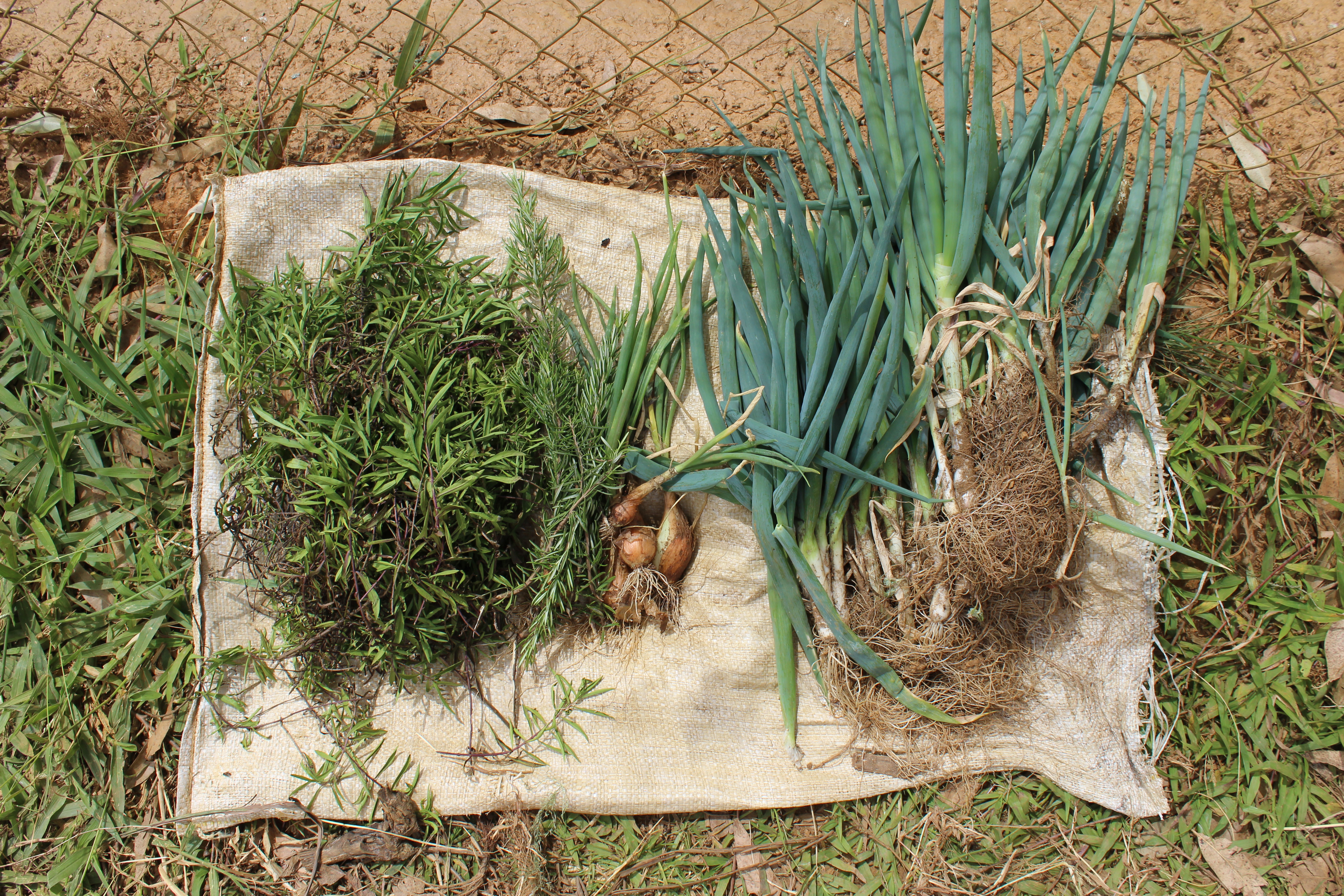
What did I learn about leadership?
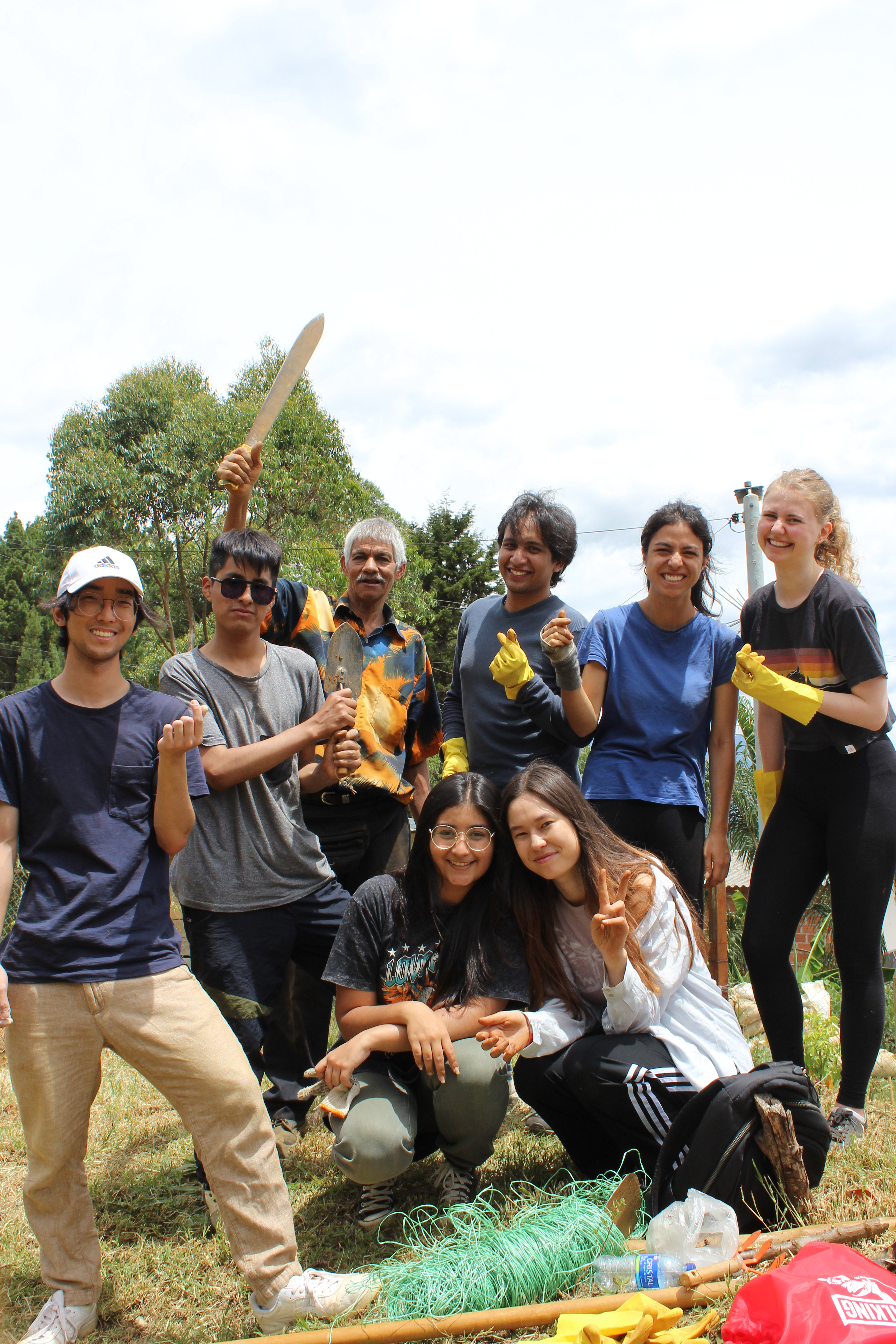
Daniela from makesense, and a resident of El Faro.
Thinking about the leadership attribute of social and cultural intelligence and awareness, it was important for us that our volunteers educated themselves on the past and present context of El Faro prior to our on-site visit. In comparison with our volunteers’ life in other parts of the city, the day-to-day experience of the community is more complex due to the absence of governmental support and the history of displacement and internal migration that most residents in El Faro share. While the effort of empathising with the host community was a natural first step for us coming from abroad, we realised that also amongst our local collaborators from UPB there is scarce knowledge on the reality and dynamics community-built settlements in the outskirts of Medellín. In a collective effort, our team of students carried out an extensive background research and on-site interviews with community leaders in El Faro, to be included in a short documentary as an activity report of our work. By introducing the volunteers to the community of El Faro and mediating interactions, we explored a different side of leadership: a leader is there not only to guide a team, but also to facilitate collaborations, building a network, and increasing trust amongst different stakeholders involved.
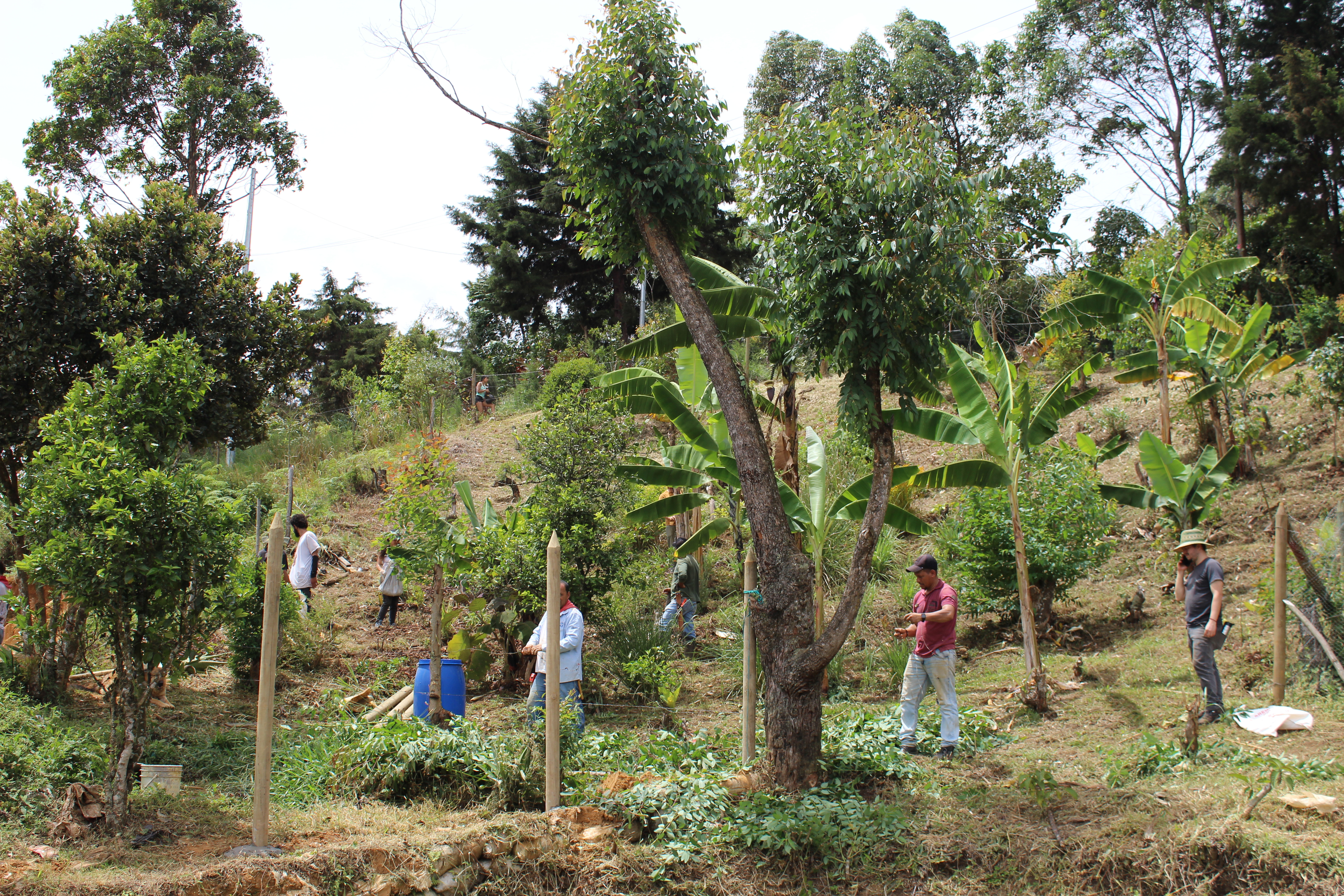
What do I want to develop or focus on next?
During the upcoming week, the hope is to complete any unfinished task related to the project, particularly following up on the plan to build an irrigation system in El Faro in collaboration with the agricultural engineers who we introduced to the community leaders a few days ago. At the moment we are planning a second visit after our departure, for the engineers to provide us with a quote and begin thinking about implementation; personally, I want to keep in touch with all the stakeholders involved as much as possible even from afar, to ensure continuity in the process.





Please sign in
If you are a registered user on Laidlaw Scholars Network, please sign in